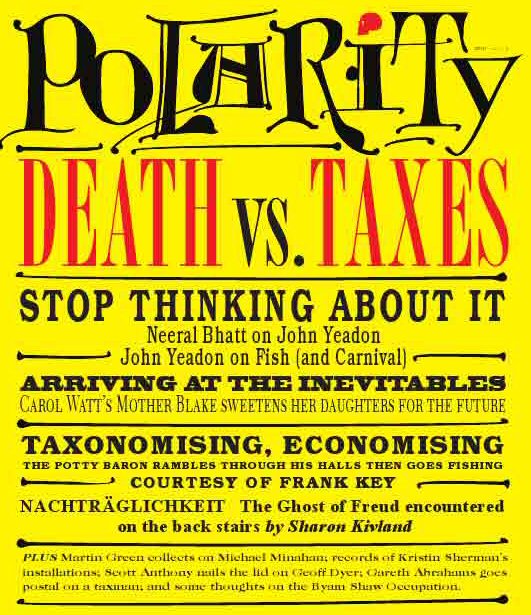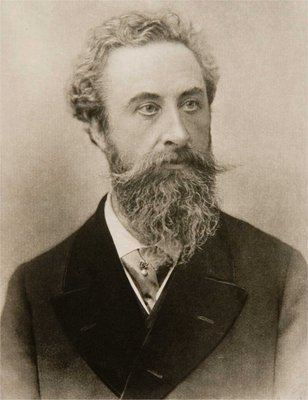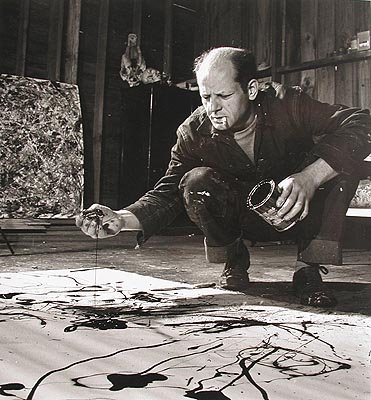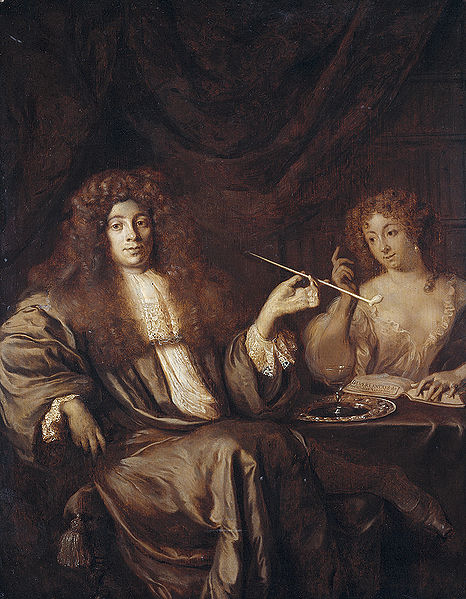Reader Mike Jennings, usually in exile in a pompous land, is sojourning in Dublin, from where he sends this splendid holiday snap. There is something infinitely pleasing about a sign lit by neon gas advertising that most toothsome of delicacies… gruel!
Monthly Archives: June 2010
From Plovdiv
Here at Hooting Yard we rarely take note of tennis tournaments, but let it be recorded that Tsvetana Pironkova, who surprisingly knocked Venus Williams out of the Women’s Singles at Wimbledon yesterday, hails from Plovdiv in Bulgaria. No doubt the plucky giant-killer was inspired by the Plovdiv Central Post Office mural painted by Georgi Bozhilov, a member of the legendary Plovdiv Fivesome. Perhaps, too, she grew up listening to the stories of Ugo and his blind Ma and his pal Ulf in Old Plovdiv. I like to think she owes her success to these things, which have been given the all-important Hooting Yard imprimatur.
Names On Maps
“Ordnance Survey Map 104 : Leeds and Bradford… It’s a riot of names that could be nowhere else but Yorkshire: villages such as Luddendon Foot, Mytholmroyd, Farsley Beck Bottom, Wibsey, Odsal, Idle, Owlet, Harden, Greetland, Rastrick, Ossett, Soothill, Scarcroft, Wike, Kirkby Overblow, Spofforth, Scriven, Blubberhouses, Stainburn, Birstwith, Thwaites Brow, Cringles, Glusburn and Goose Eye – a list that sounds more like entries in a dictionary of Dickensian ailments.”
Mike Parker, Map Addict (2009)
Potato Soup Until Dusk
A marked lack of activity in the Key cranium these past few days, I’m afraid, though there is some prose in progress. Meanwhile, here is something I learned that I think worthy of further attention.
In Voodoo Histories : The Role Of The Conspiracy Theory In Shaping Modern History (2009), David Aaronovitch mentions in passing “an incident in the small town of Mosinee, Wisconsin, where in 1950 veterans from the American Legion disguised as Russian soldiers took over the town, arrested the mayor, imprisoned the clergy, nationalised businesses and allowed only potato soup to be served in the cafes, before allowing everyone to be liberated from communism at dusk.”
Bird Masks Optional
While you wait for Mr Key to stop shillyshallying and produce this year’s Lulu book, the print aficionados among you will be delighted to hear about a new magazine entitled Polarity. The first issue, Death Vs. Taxes, is due out imminently, and its London launch party is to be held next Sunday, 27th June, from 6.00 PM at the Slaughtered Lamb, 34-35 Great Sutton Street, London EC1. Among other enticements, there will be poetry from Carol Watts, songs from the great Peter Blegvad, and some prose from Mr Key himself, making a rare public appearance. All Hooting Yard readers and listeners should, of course, cancel all other appointments and attend. I am told that the dress code for the event is “bird masks optional”.
Bulwer-Lytton
World Cup Fever, Again
We know that the important thing about any televised foopball match is the demented wittering of the commentators. The 2010 World Cup has, in that sense, reached its climax with just a week of matches played. For I do not believe any commentator, however bonkers, will be able to better the stupendous words declaimed during tonight’s France v. Mexico tie:
“For a moment there, he looked like a baby gazelle who’d just plopped out of the womb.”
Summer Reading
Precisely sixty years ago today, on the seventeenth of June 1950, Dobson was at a particularly low ebb. The great pamphlet-buying public seemed to have turned its back on him, ignoring the many tremendous pamphlets he continued to churn out. The vast bulk of his work to date was already out of print. According to Marigold Chew, it was around this time that he seriously considered throwing in the towel and becoming a janitor with a bucket and mop.
But then, on that June morning, Dobson came up with one of his harebrained schemes. He decided to flood the railway station kiosks of the land with what purported to be an objective guide to the very best pamphlets available. Inside a deliberately mimsy cover, This Year’s Summer Reading (out of print) promised the keen (and even not so keen) pamphlet-reader a list of unmissable pamphlets. Dobson seemed to be convinced that this would drum up sales of his work. Foolishly, however, he devoted the entire list to his own scribblings, without bothering to throw in at least a couple of pamphlets by rival pamphleteers. It was a piece of blatant self-glorification, and was received with both outrage and disdain. It did not help that Dobson used a star rating system for his recommended pamphlets, and then awarded the maximum twenty stars to every single pamphlet he listed.
Some Dobsonists exclude this sorry little production from the canon, perhaps hoping that it will be consigned to the waste chute of history. Others complain that it muddies the waters of Dobson bibliography, given that the pamphleteer included pamphlets he planned to write, but never did. So, for example, alongside the well-loved 1949 pamphlet Chucklesome Fripperies From The Bowels Of Hell (out of print) we find listed Some Remarks On Lemon Meringue Pie And The Film Career Of Nova Pilbeam. No trace of any such pamphlet has ever been found, and though Dobson wittered elsewhere about both the pie and La Pilbeam, he did so in quite other contexts.
It was long thought that the twee picture on the cover of This Year’s Summer Reading was a mezzotint by the noted mezzotintist Rex Tint. However, the latest research concludes that it is a linocut by the noted linocutter Rex Lino.
Bootless
“It is bootless to pine after knowledge irretrievably buried in oblivion. Otherwise we might fairly have wished to have stood beside King Nebuchadnezzar when he so unadvisedly uttered that proud vaunt which ended in his being condemned to a long course of vegetable diet.”
William Bodham Donne, Old Roads And New Roads (1852)
World Cup Fever
Someone drew to my attention that all this business about Kaká and Dunga and Crouch could be related to the World Cup, so I embarked upon a spot of research. What I found was some spectacular nonsense (splendidly dealt with here – note particularly the closing paragraph) and some spectacular sense (note particularly the correct, Molesworthian spelling of foopball).
Thimble Of Everything
“A rose is a rose is a rose is a rose” is perhaps Gertrude Stein’s most memorable utterance. It first appeared in the 1913 poem Sacred Emily (published in 1922 in the collection Geography And Plays) as “Rose is a rose is a rose is a rose”, the first Rose being a proper name. There are other lines in the poem of which I am very fond, including:
It is rose in hen… Weeds without papers are necessary… Humming does as humming is… Electrics are tight electrics are white electrics are a button… A very reasonable berry… A coral neck and a little song so very extra so very Susie… Cow come out cow come out and out and smell a little… Websters and mines, websters and mines… Cunning piler… Thimble of everything.
ADDENDUM : For more about Gertrude Stein and cows, go here.
How Doctors Wrote
“The antiquarian may take his stand upon Mam-Tor, the mother rock, when the moon sheds her silvery light o’er Loosehill Mount, and, carrying his mind back into the past some 230 years, hear the bugle’s note as it sweeps through the Wynnats Pass, and is taken up by the Peverel Castle and transmitted onwards through the Vale of Hope, calling the hardy dalesmen to their midnight rendezvous, there to be instructed in the science of war, so as to enable them to protect their homes and families against the marauding myrmidons of a cruel, heartless, and unreliable king; or if the antiquarian seeketh a knowledge of the High Peak folk-lore, and feareth neither pixie or graymarie, he can, on a spring night, just as the moon has entered her last quarter, and the first note from the belfry of the chapel in the frith has proclaimed the arrival of midnight, take his stand upon Blentford’s Bluff and peer into the dark and sombre depths of Kinder, when he will hear the hooting of the barn owl on Anna rocks, the unearthly screech of the landrail as he ploughs his way through the unmown grass in search of his mate, the scream of the curlew and chatter of the red grouse as they take their flight from peak to peak, and see the fairy queen come forth from the mermaid’s cave in a shimmering light, followed by her maids, who dance a quadrille to the music of the spheres, and hear the wild blast of the hunter’s horn heralding the approach of the Gabriel hounds as they take their rapid course across the murky sky, and become lost in the unfathomable depths beyond the Scout.”
Robert Ottiwell Gifford-Bennet, M.D., Senior Acting Physician To The Devonshire Hospital And Buxton Bath Charity, Buxton And Its Medicinal Waters (1892)
Art
Thanks to my son Ed, I have discovered just how easy it is to fritter away the hours here.
Should you find yourself spending far too long there, bear in mind, as I now do, these wise words from Peter De Vries, in The Prick Of Noon (1985): “I too believe in every kind of experimentation, freedom for the artist to shovel on reds and greens and oranges and purples in any quantity and as higgledy-piggledy as he wishes. But somewhere he’s got to draw a line.”
Poultry Menace, Day One
“Clicking the link would have been a letdown” noted Glyn Webster in the email to which he attached this screenshot:
He may be right, and life is too short to follow up every damned link thrown at us by Google. But I confess I am very intrigued. In a world of fluffyheads, pseudoscientists, conspiracy theorists, theocratic nutters and whatnot, who would have thought that the greatest and most dangerous enemy of Reason is poultry? This calls for proper investigation, before the majestic achievements of the Enlightenment are brought crashing to the ground by vengeful and unreasonable hens. Fear not – Mr Key is on the case!
I suppose one can take a crumb of comfort from the doubt implicit in the question mark appended to the caption. Nevertheless, until I am able to bring you further revelations, keep a beady eye on any poultry you come across. Meanwhile, I shall begin by looking up what Diderot had to say about hens, to discover if he had any inklings of the threat.
UPDATE : Hmm, this could prove significant. In D’Alembert’s Dream (1769), Diderot has Bordeu say this : “But here’s a strange fact which countless educated people will tell you is true but which is false, namely, that in the poultry yard of the archduke they’ve seen a disgusting rabbit who used to act as a cock and service around twenty shameless hens who were happy with the arrangement. The people will add that they have been shown some chickens covered with fur which were the products of this bestiality. You can be sure they were ridiculed.”
Clearly my next step must be to conduct a rigorous survey of the poultry yards of archdukes.
The Song Of The Borts Of Pray
This is Hadrian Beverland (c.1651-1716), accompanied by “a wanton woman”. Beverland was a theologian of sorts and a classical scholar of great erudition. His book detailing the sexual abnormalities of the ancient world was described as “abominable and scandalous” and “an abortion from depraved brains” by the authorities of Leyden University, and he was banished from Holland. He spent much of the rest of his life in London and is buried in the churchyard of St Paul’s, Covent Garden.
He made various attempts to gain permission to return to his homeland, and when these failed he developed a persecution mania to which he gave vent in a series of pamphlets. These take the form of letters to him from the fictitious Perin de Vago, together with Beverland’s responses. Beverland was particularly exercised by a certain Tempest, “that curst flatterer” and “prophanest Reprobat” who “tried to make a Tennissball of a Foreigner”. Tempest sent “Girrls into the Fiels, who with a wanton eye could move olds mens entrails” and “Wensches with Linnen Oisters and Orang Appels who breathe life into Deathmen”. “Alackaday,” he complained, “only for loaking fresh in a frosty evening you must be suspected to be a Deboche.” Others apart from “the Gnat Tempest” were scheming against him, and “If the Mystery of the Plot lies hidden in the bottom of Hell, it will not only be difficult to draw it out of the Dunghill, but also dangerous to disturb the Dragons, Snakes and Hornets. Let them Lices who suk their livelyhood out of our carcass glorys in their guile. You avoid their Companye.”
Towards the end of his life Beverland prepared a catalogue of his collection of paintings for sale, in which he included this verse:
(The Song of the Borts of pray,) I have no Wife / The Devil Upon Two Crutches / Chear! Chear! / Hier / Carry me to Hell. / I do not know my L. where Hell is: But if it may please your L. I carry you to the Devil. / Go unto the Devil Tavern. / What upon Crutches! / I am very Old, if it may please your L. / No Old Devil can please me. Have you no younger Devils in Hell? / Yes, Long Brown, who carries little Davits upon his Shoulders: / What is become of little Gibson?






